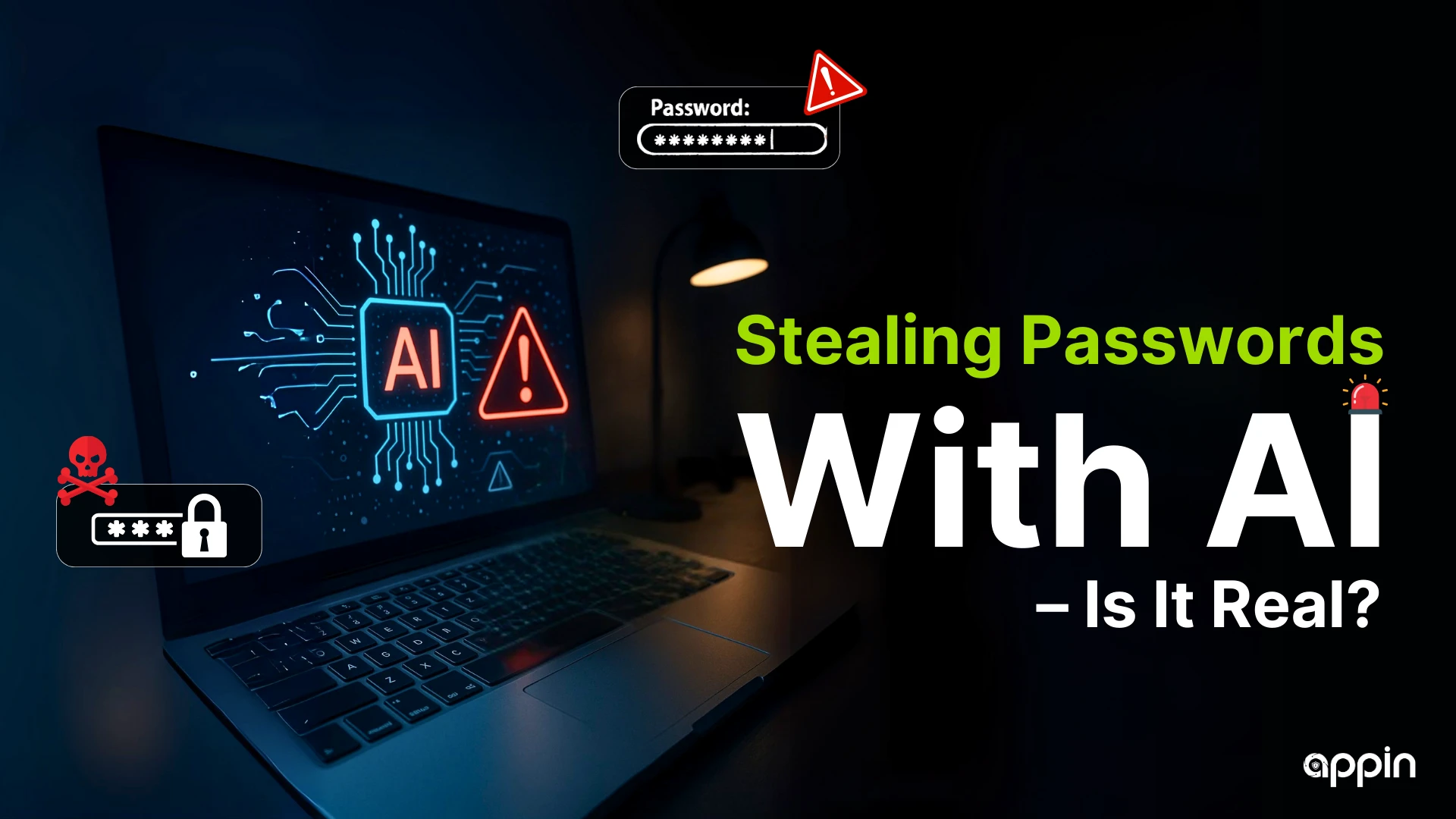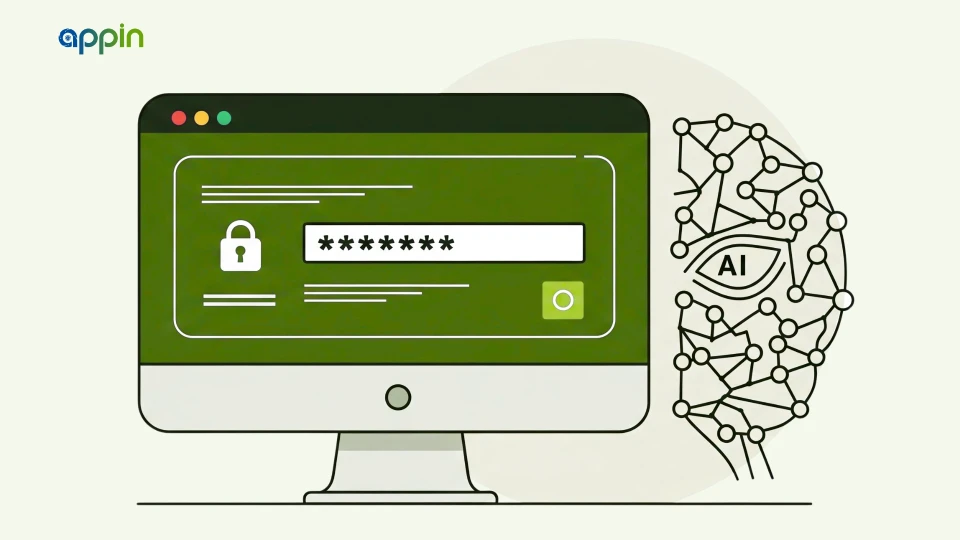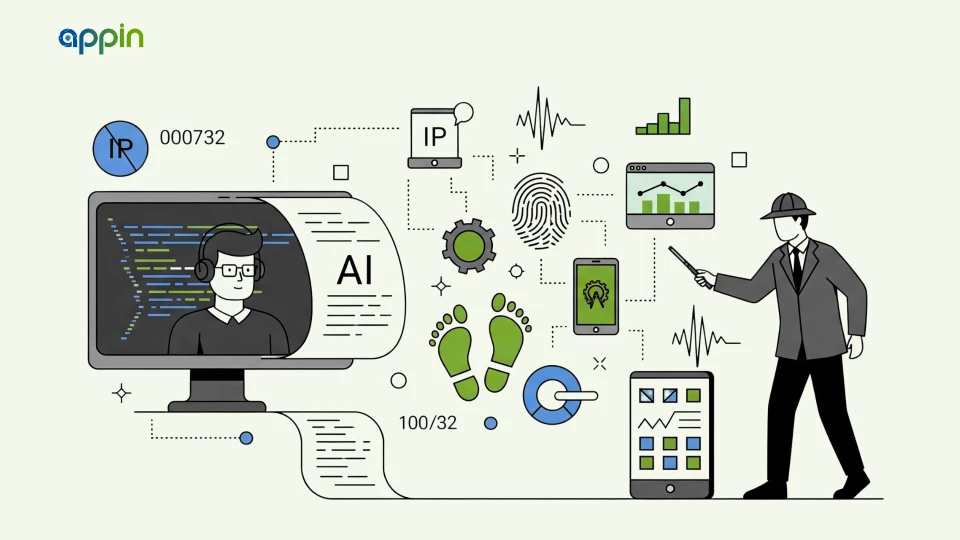The idea of AI password hacking myths has spread quickly among students and beginners curious about cybersecurity. With artificial intelligence becoming part of everyday tools, many imagine it as an all-powerful system capable of instantly breaking into accounts.
In reality, most of these ideas are exaggerated or misunderstood. Yes, AI is used in cybersecurity, but not in the way people think when it comes to hacking passwords. Many of these myths are fueled by misleading articles, fake YouTube videos, and scam websites promising quick results.
In this blog, we will uncover the truth behind these common beliefs. You will see why ethical hacking is about building defenses, not spreading fear. By the end, you will also know how to learn ethical hacking the right way instead of falling for shortcuts that never work.
Myth 1 – AI Can Instantly Hack Any Password
One of the most common beliefs is that AI can instantly break any password. Movies and online rumors make it sound like AI tools can guess even the strongest combination of numbers and letters within seconds.
The reality is very different. Passwords are protected by encryption, which is designed to make cracking extremely time-consuming. While brute-force attacks try every possible combination, even the fastest AI-assisted tools still need years to break modern encryption.
What AI can do is improve cyber security ethical hacking research by finding weak patterns or helping identify commonly reused passwords. But when you use a strong and unique password, instant cracking is nearly impossible.
Key takeaway: AI is powerful, but it is not magic. Strong passwords with special characters, numbers, and long phrases remain your best defense.
Myth 2 – AI Password Crackers Are Easily Available Online
If you search for “AI hacking tool” online, you will find countless results claiming to offer free downloads. Most of them advertise quick access to social media accounts, including Instagram, Gmail, or Facebook.
But here is the truth: these so-called AI password crackers are scams. Students who download them risk installing malware on their own systems. Instead of hacking others, you end up giving away your own personal data, files, or even banking information.
This is why starting with an ethical hacking course is far more valuable. It teaches you how actual security tools work and how attackers exploit weak systems. More importantly, it shows you how to prevent falling victim to scams disguised as hacking shortcuts.
Key takeaway: Real security skills are learned through study and practice, not by downloading shady tools that compromise your own system.
Myth 3 – AI Can Bypass Two-Factor Authentication
Two-factor authentication (2FA) is one of the strongest defenses we have today. It requires something beyond your password, like a one-time code sent to your mobile or an authentication app token.
A popular myth is that AI can somehow “guess” or “bypass” these protections. The fact is, AI cannot generate or predict time-based tokens or personal verification codes. These are designed to expire quickly and are unique to each login attempt.
While attackers may try phishing tricks to steal codes, AI itself cannot simply break into 2FA-protected accounts. This is why security experts strongly recommend enabling 2FA on all critical accounts.
For students interested in real defense skills, this is where ethical hacking and cyber security overlap. You learn how attackers think, and more importantly, how to block their methods before they succeed.
Key takeaway: AI cannot simply bypass 2FA. If you want real protection, always enable it on every platform you use.
Myth 4 – Voice or Face AI Can Steal Your Passwords
With the rise of deepfakes and AI voice cloning, another fear is that biometric systems like facial recognition or voice authentication can be hacked instantly.
While it is true that AI-generated content can trick humans, most biometric systems have multiple safeguards. They check for depth, movement, and live responses rather than just matching a static picture or a recorded voice.
For example:
- Face ID systems scan depth using infrared sensors.
- Voice recognition checks for live patterns, not pre-recorded clips.
So while AI deepfakes are a rising threat in areas like misinformation, they are not a simple tool to steal passwords. Companies continue to strengthen biometric systems against these risks.
Key takeaway: Biometric security is not perfect, but AI cannot simply “steal” your identity with a photo or recording. Responsible use of technology and updated systems keep them safe.
Myth 5 – AI Hackers Cannot Be Traced
Another one of the popular AI password hacking myths is that hackers using AI cannot be tracked. Many students assume that AI makes an attacker invisible. This is far from true.
Law enforcement agencies have advanced cyber forensics that focus on digital footprints. Every online action leaves traces such as IP addresses, device fingerprints, and suspicious network activity. AI does not erase these footprints.
In fact, many attackers who relied on AI tools for illegal hacking were caught because of mistakes in their operational security. Once authorities analyze logs, traffic, and encrypted channels, hackers eventually get identified.
Key takeaway: AI does not make hackers invisible. Instead, using it for illegal activity increases your chance of being flagged and investigated.
Myth 6 – Password Managers Are Unsafe Against AI
Some people avoid password managers because they think AI can crack them easily. This is one of the most misleading AI password hacking myths.
Password managers are built with strong encryption, often AES-256, which is nearly impossible for AI tools to crack instantly. They are designed to protect passwords in a secure vault, far safer than writing them down or reusing weak ones.
By using a password manager, you:
- Create unique and complex passwords for every account.
- Avoid reusing the same password across platforms.
- Protect your credentials even if one site is breached.
If you are serious about security, learning through an ethical hacking full course will show why password managers are safer compared to relying on memory or unsafe storage.
Key takeaway: Password managers are not a weakness. They are one of the strongest defenses against attackers.
Myth 7 – Learning Hacking Through AI Tools Makes You a Pro
Many students believe that downloading AI-based tools is enough to become skilled at hacking. This is one of the most dangerous AI password hacking myths.
The truth is that most AI “hacking tools” available online are fake or incomplete. They either install malware, waste time, or provide no real learning value. Relying on them will not give you any practical skills.
If you want real knowledge, you must invest in structured training. An ethical hacking course fees may sound like an expense, but it is actually an investment in your career. Courses provide:
- Step-by-step training on real-world attack methods.
- Legal environments like labs for practice.
- Recognition through certifications such as Certified Ethical Hacking.
Key takeaway: Real expertise comes from study, practice, and certifications, not shortcuts with unverified tools.
Safer Alternatives to Explore Cybersecurity
If you are curious about how hackers operate, there are safe and legal ways to explore. Instead of falling for AI password hacking myths, you can gain real skills through structured courses.
Some safe alternatives include:
- Cyber Security Certification – A foundation course to understand threats, defenses, and system vulnerabilities.
- CEH v13 Certified Ethical Hacking – A professional certification recognized globally that teaches you penetration testing, security analysis, and more.
- Bug Bounty Diploma – A program designed for students who want to explore vulnerabilities in real systems and get rewarded for reporting them.
These programs provide hands-on labs where you can practice legally, simulate attacks, and learn how to defend systems. They not only build technical skills but also open strong career opportunities in cybersecurity.
Key takeaway: Learning through structured training prepares you for jobs, while illegal shortcuts only put you at risk.
Conclusion
The rise of AI has created many myths, and AI password hacking myths are among the most common. We’ve seen that:
- AI cannot instantly hack strong passwords.
- AI tools online are mostly scams.
- Two-factor authentication and password managers are still effective.
- Hackers using AI can still be traced.
- Real skills come from training, not fake shortcuts.
Instead of chasing myths, students should focus on real skills in ethical hacking and cybersecurity. With the right guidance, you can build a strong foundation and grow into a trusted professional.
If you are serious about building a career in this field, start today. Inquire now about Appin Indore’s programs in Cyber Security Certification, CEH v12, or Bug Bounty Diploma to take your first safe and legal step into this exciting career path.




